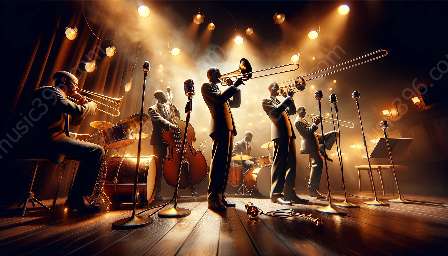Jazz music is a genre known for its vibrancy, spontaneity, and creativity, and at the heart of this art form lies improvisation. This ultimate guide explores the pivotal role of improvisation in jazz and its influence on a wide range of jazz and blues subgenres.
Understanding the Essence of Improvisation in Jazz
Improvisation in jazz is the spontaneous creation of melodies, harmonies, and rhythms within the framework of a musical composition. It is a fundamental element that empowers musicians to express their individuality, creativity, and emotions in real time, making each performance unique and captivating.
Historical Significance
Jazz has a rich history rooted in African American culture, where improvisation has always been a vital component. From the early days of jazz in New Orleans to the bebop era of the 1940s, improvisation has transformed and evolved, shaping the sound of jazz and influencing other musical genres.
Techniques and Approaches
Improvisation in jazz involves a variety of techniques and approaches, including scales, chord progressions, melodic patterns, and rhythmic variations. Musicians use these tools to navigate through complex harmonic structures and create spontaneous musical dialogues with their fellow performers.
The Influence of Improvisation in Jazz Subgenres
Improvisation has played a significant role in shaping various jazz subgenres, such as bebop, cool jazz, modal jazz, free jazz, and fusion. Each subgenre has its own distinct approach to improvisation, contributing to the diversity and innovation within the jazz landscape.
Unraveling the Connection Between Jazz and Blues Subgenres
Jazz and blues share a deep-rooted connection, and the role of improvisation is a common thread that intertwines these two genres. Blues elements, such as call-and-response patterns, blues scales, and emotional expression, have heavily influenced jazz improvisation, enriching the sonic tapestry of both genres.
Blues-Based Improvisation
Many jazz and blues subgenres, including swing, bebop, and soul jazz, incorporate blues-based improvisation, characterized by its raw emotion, expressive phrasing, and soulful intensity. This improvisational style serves as a bridge between jazz and blues, creating a seamless fusion of musical traditions.
Embracing the Significance of Improvisation in Jazz and Blues
In conclusion, the role of improvisation in jazz music is undeniably profound, serving as a beacon of artistic freedom, creativity, and collaboration. This ultimate guide illuminates the intricate relationship between improvisation, jazz, and blues subgenres, shedding light on the enduring legacy of improvisation as a cornerstone of musical expression.






























